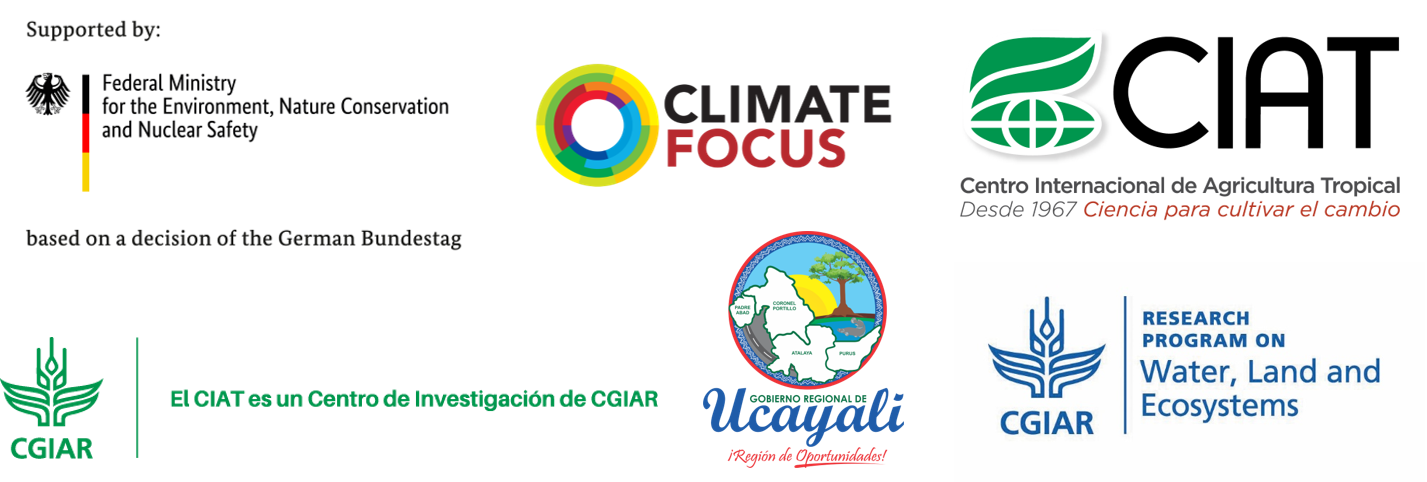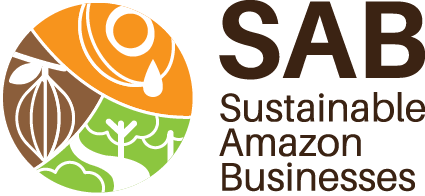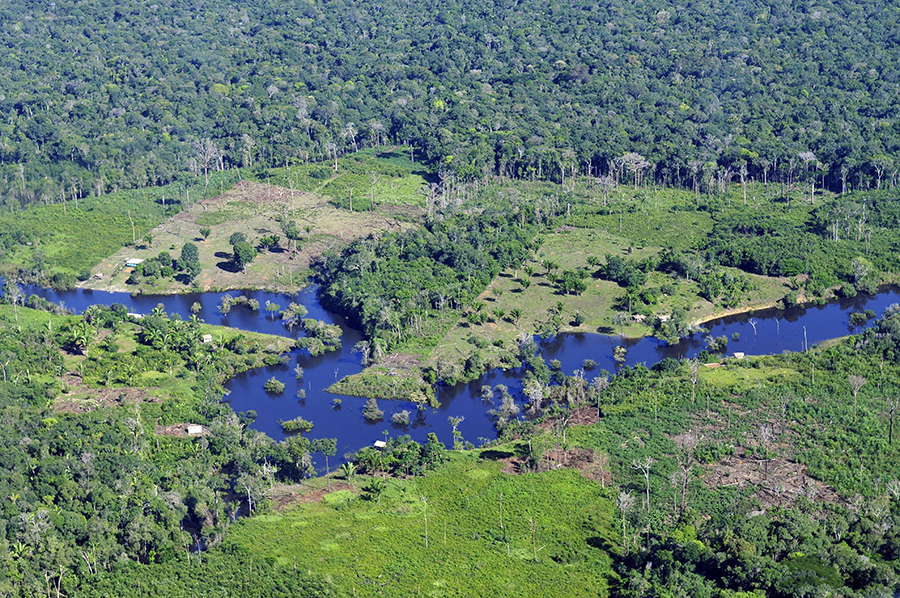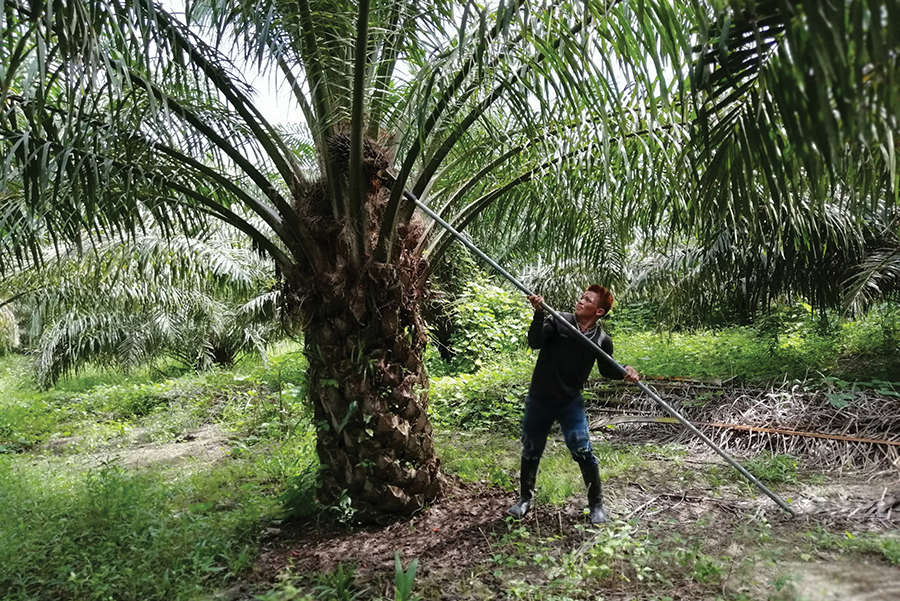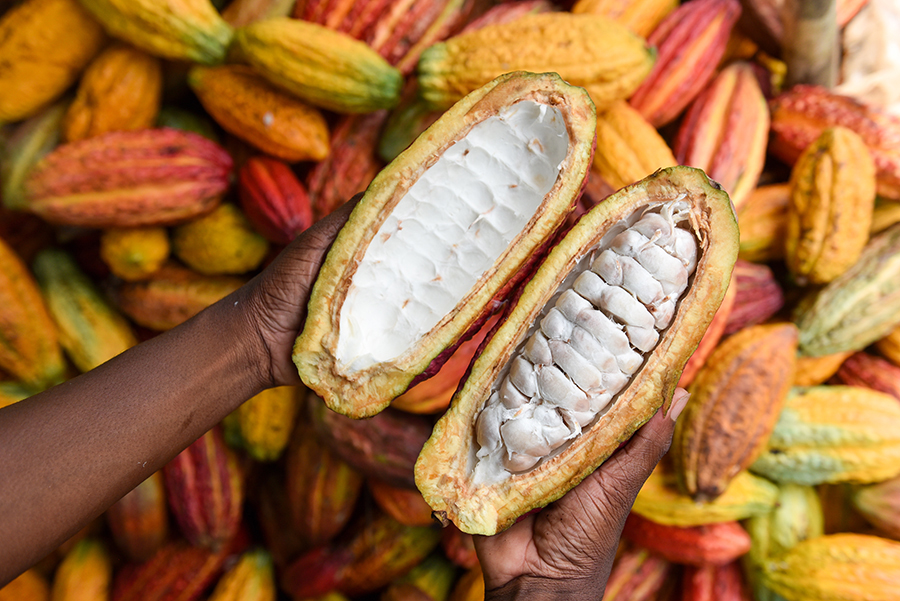The initiative, in coordination with the Ministry for the Environment (MINAM) and the Ministry of Agriculture (MINAGRI) in Peru, and the Ucayali Regional Government, in partnership with the Climate Focus international consulting firm (CF), seeks to facilitate the adoption of sustainable practices in oil palm and cocoa crops, as well as the compliance with zero-deforestation commitments.
The Peruvian Government is committed to reduce greenhouse gas emissions (GHG) from deforestation and agriculture, as well as to a low-carbon development in the agricultural sector. To achieve this, challenges must be addressed regarding the identification of agricultural management practices to improve productivity and reduce their contribution to GHG emissions.
Within the framework of the Joint Declaration of Intent (JDI) for the fulfillment of the goals of Nationally Determined Contributions (NDC) related to the reduction of deforestation and GHG emissions, the Peruvian Government seeks to enter into public-private partnerships to facilitate the adoption of sustainable practices in prioritized production systems, with the purpose of increasing the productivity of already deforested lands and reduce the pressure of agriculture on forests.
To this end, the “Business Models to Address Drivers of Deforestation in Peru” project (called Sustainable Amazon Businesses – SAB – for short) develops business models with zero deforestation in oil palm and cocoa value chains in the Ucayali region. The project is part of the International Climate Initiative (IKI, its German initials), supported by the German Federal Ministry for the Environment, Nature Conservation, and Nuclear Safety (BMU, its German initials). The project, which will be implemented through 2021, is aligned with the environmental and low-GHG-emissions development goals of Peru’s National Government.
The activities proposed within the project framework include:
- Analysis of the specific context of deforestation drivers
- Assessment of greenhouse gas emissions (GHG) across value chains
- Design of sustainable business models focusing on zero deforestation
- Development of implementation plans for pilot business models
- Scalability and replicability through financing strategies
According to Marcela Quintero, Director of the Agroecosystems and Sustainable Landscapes Research Area at CIAT and leader of the initiative, “Project goals include two participatory strategies for value chains with a shared vision agreed upon by all stakeholders, focused on the verifiable fulfillment of zero deforestation and emission reduction commitments. The project also includes moving from strategy to practice, therefore, it is committed to implement at least two business models in deforestation-free cocoa and oil palm in the Amazon region, to generate evidence that these commercial commitments are viable to reduce deforestation.”
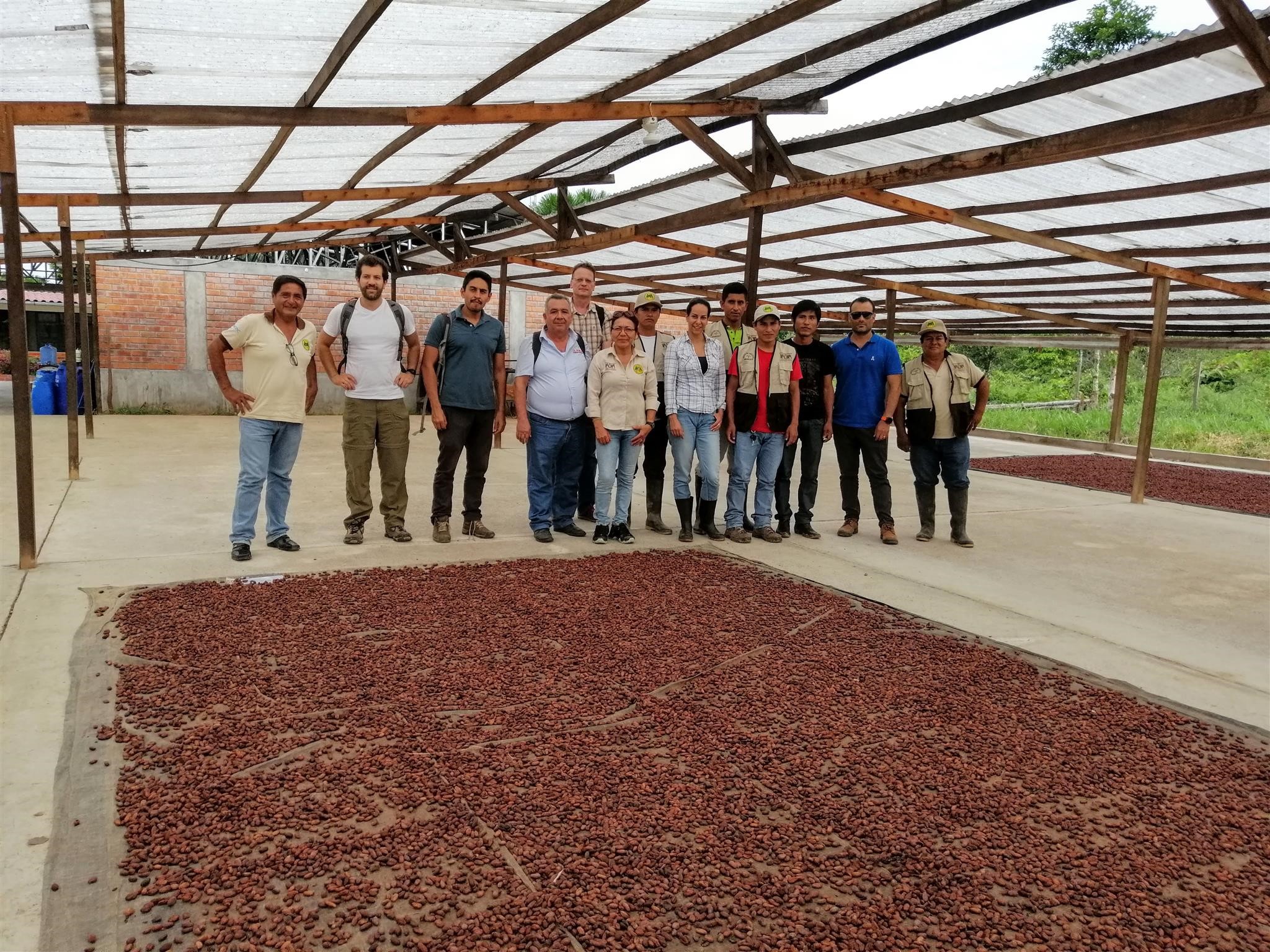
Figure: Workshop on Participatory Models with small- and medium-sized associated producers from the Ucayali-Huánuco Amazon, through commercial partners.
As part of project activities, a workshop was recently held with government officials and specialists from the Ucayali Regional Government on value chain methodologies and inclusive businesses. Workshops were also held with cocoa and oil palm producers, with the purpose of collecting information for the development of estimates for production and emissions in the oil palm and cocoa production systems in the city of Pucallpa (Ucayali region). This required an exploratory visit in March, where the CIAT team met with government authorities, representatives of cooperatives and companies from the prioritized value chains.
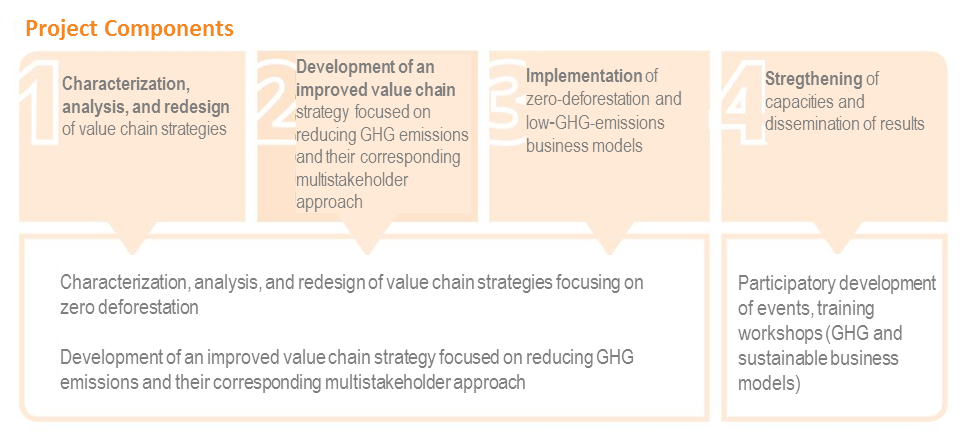
This project has been financed by the International Climate Initiative (IKI). The German Federal Ministry for the Environment, Nature Conservation, and Nuclear Safety (BMU) supports this initiative, based on a decision made by the German Bundestag. This also gathers the expertise and capacities of two Research Areas at CIAT: Agroecosystems and Sustainable Landscapes (ASL) and Policy Analysis (DAPA), within the framework of the Water, Land, and Ecosystems CGIAR Research Program (WLE).
Contacts:
Marcela Quintero
Project Leader
Director of the Agroecosystems and Sustainable Landscapes Research Area (ASL)
m.quintero@cgiar.org
Yovita Ivanova
Project Coordinator
Agroecosystems and Sustainable Landscapes Research Area (ASL)
y.ivanova@cgiar.org
